So it was off to Calle Laurel for the compulsory tapas bar crawl last night. It was Tuesday, so it wasn’t terribly busy, but there was enough of a buzz for it to be fun.
The way it works is that each of the scores of tapas bars tends to specialize in one dish. You order that dish, and a glass of wine or a beer (measures are small-ish, and about 1.5 Euros, rising to perhaps 3 for something posh) and then consume it. Then you move on to the next bar.
We did four bars, and then stayed at the last one for a few courses, because the food was pretty good, and the wine very refreshing. It was a jolly evening.
It helped that the group on this trip was such good fun. Natalie Potts from Phipps PR was leading us, and as well as me, there was David Williams (Observer) and Brian Elliot (Scotland on Sunday, Daily Record).
Pictured from top: Logrono cathedral in the evening sun; pork sizzling over a charcoal grill; liver on mushrooms with a prawn on top; a posher tapas joint (most are much more rough and ready); pepper stuffed with mince.
3 Comments on Logroño tapas crawl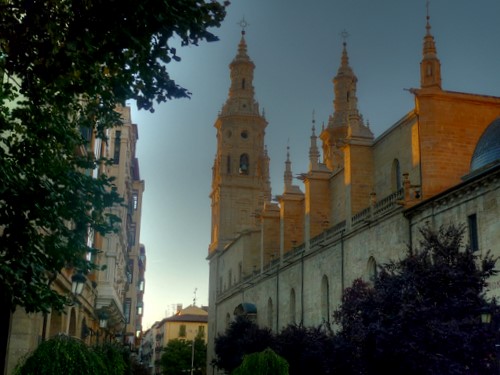
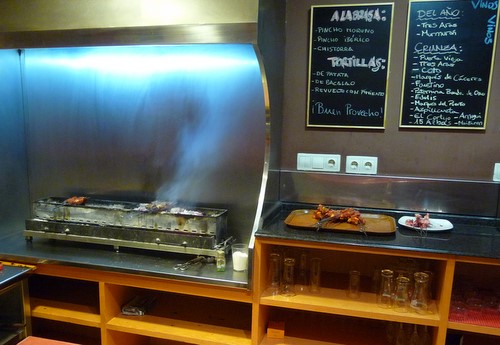
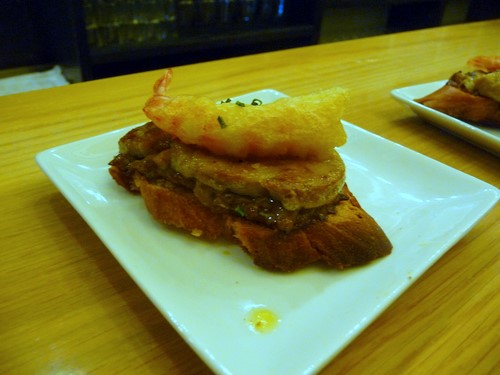
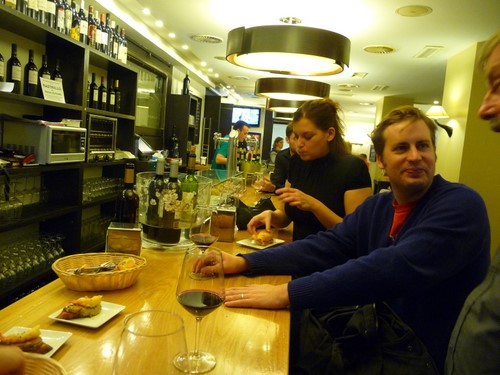
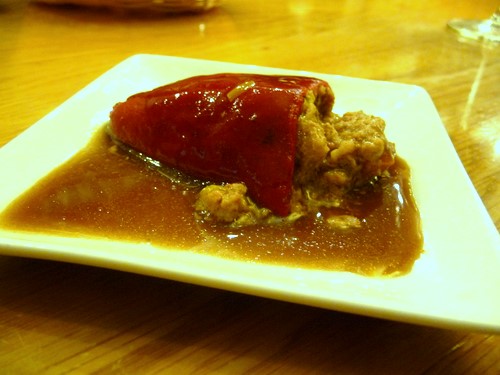

Nice to see the pics of Laurel, takes me aback a bit. Oh those piquillo peppers… a Riojan speciality. AFAIK they are only grown there.
Surely there must be the odd producer interested in organics etc?
Hi Jamie, hi Mark, regarding your question about organics there is a growing interest in the region and a number organically farmed vineyards – it can be a lengthy and expensive process to get these certified as organic so some vineyards, although farmed without pesticides etc, are not fully certified – Luis Canas in the Rioja Alavesa for example. The first winery in Rioja to go fully organic was Vina Ijalba – their wines are available via Vintage Roots along with those from another organic winery, Palacios Duque. I know of a handful of other small wineries using sustainable viticulture and then some of the bigger wineries have now released an organic wine within their range – Paternina has Banda Verde and the Grupo Faustino has launched Ecco, an organic wine from their Marques de Vitoria estate.
Thanks, Anna. I guess the issue is largely an economic one – there just aren’t many small, individual producers of the type that might be expected to embrace organics/biodynamics etc in Rioja. Seems like it is more of a top-down than a bottom-up movement.